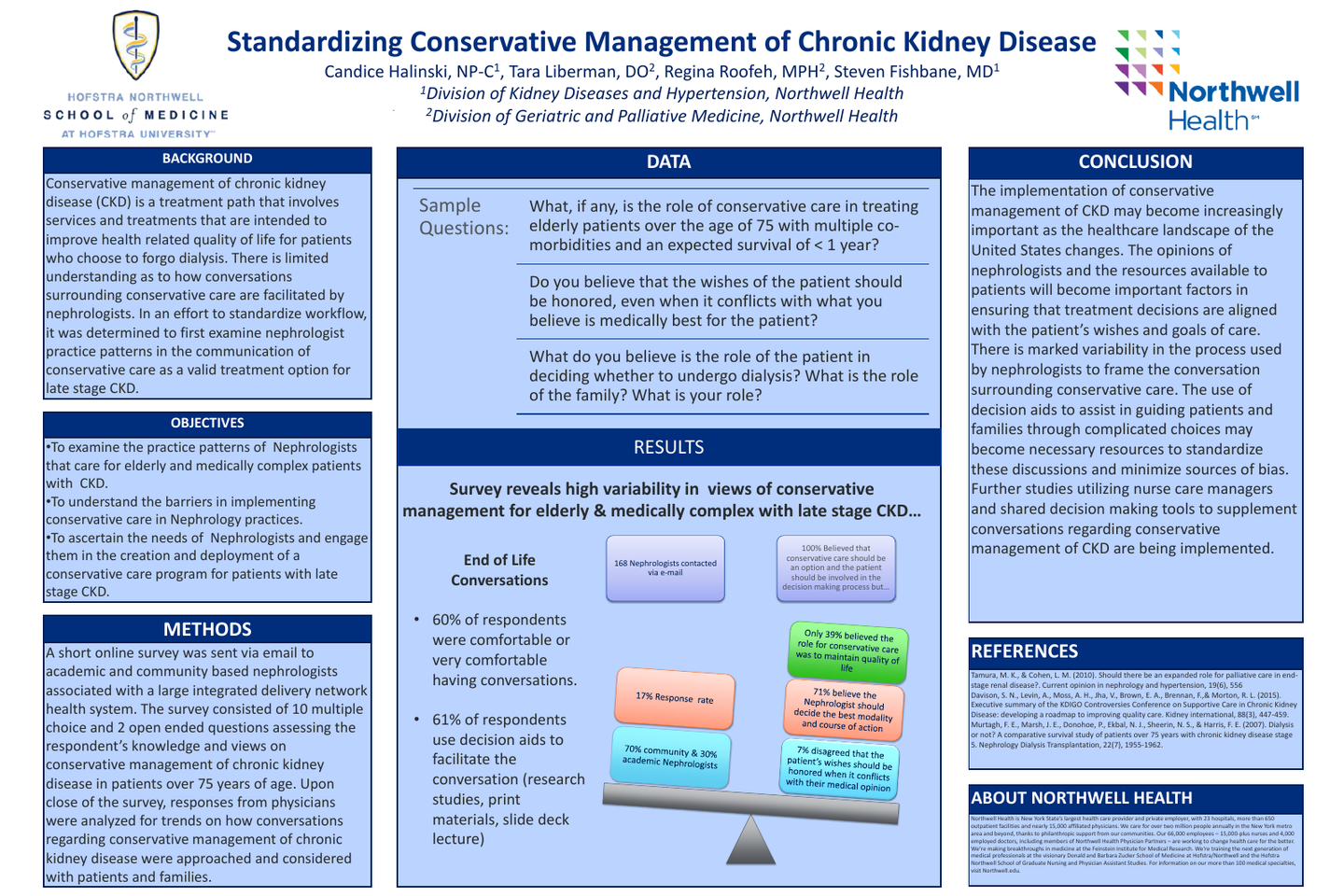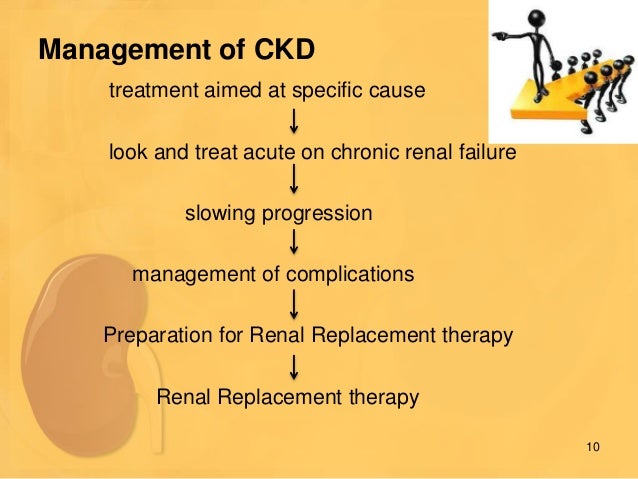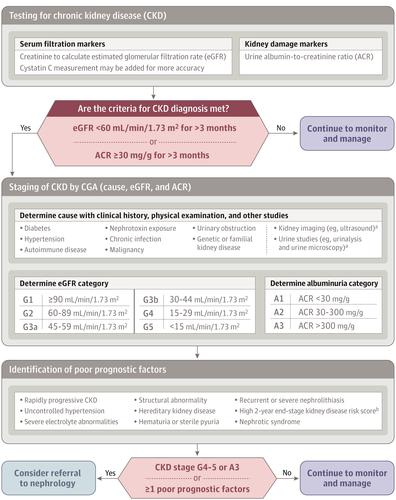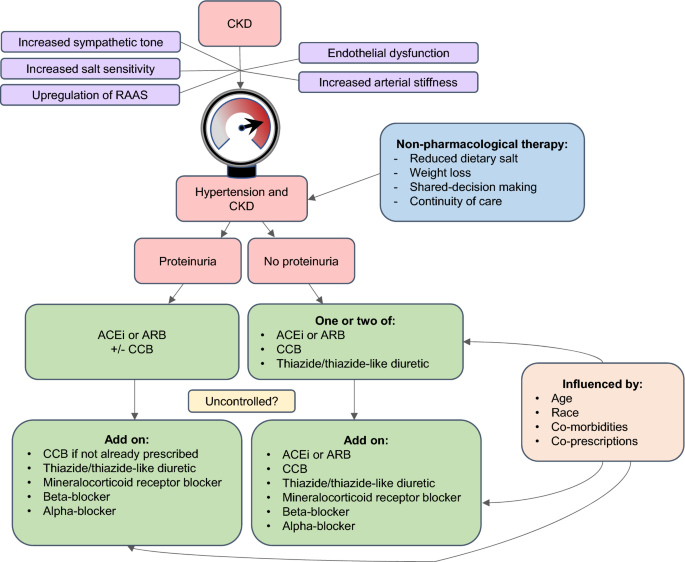- Get link
- X
- Other Apps
- Get link
- X
- Other Apps
The guideline describes the critical decision points in the Management of Chronic Kidney Disease and provides clear and comprehensive evidence based recommendations incorporating current information and practices for practitioners throughout the DoD and VA Health Care systems. These guidelines are the first integrated publication to guide and optimize care for patients with chronic kidney disease.
 Standardizing Conservative Management Of Chronic Kidney Disease Center To Advance Palliative Care
Standardizing Conservative Management Of Chronic Kidney Disease Center To Advance Palliative Care
Chronic kidney disease CKD is one of the most commonly diagnosed diseases in older cats.

Management of chronic kidney disease. To reach your blood glucose goal check your blood glucose level. Improving Global Outcomes KDIGO 2020 Clinical Practice Guideline for Diabetes Management in Chronic Kidney Disease CKD represents the first KDIGO guideline on this subject. Novel therapies may enhance treatment in the near future.
Some causes require specific management directed at the underlying cause. Work with your health care team. Chronic kidney disease is estimated to affect between 19 million and 23 million Canadians.
The Diagnosis and Management of Feline Chronic Kidney Disease Practical relevance. In most cats CKD is also a progressive disease and can be accompanied by a wide range of clinical and clinicopathological changes. The main treatments are.
Managing Chronic Kidney Disease Control your blood pressure. Chronic kidney disease is common and associated with significant morbidity. Management of chronic kidney disease CKD requires a systematic approach including all components of the chronic disease model.
Basic aspects of CKD clinical assessment evaluation and management of risk factors cardiovascular disease in the context of CKD assessment and management of CKD complications special circumstances in CKD patients and the path to renal replacement therapy are all thoroughly covered. Theres no cure for chronic kidney disease CKD but treatment can help relieve the symptoms and stop it getting worse. Managing hypertension in the context of haemodialysis and following kidney transplantation presents further challenges.
With CKD to decreaseprogression of renal deterioration potentially decrease morbidity and and mortality. Get Tested for CKD. Your treatment will depend on the stage of your CKD.
Meet your blood glucose goal if you have diabetes. The Department of Veterans Affairs VA and Department of Defense DoD Evidence-Based Practice Work Group EBPWG was established and first chartered in 2004 with a mission to advise the Health Executive. For the Evaluation and Management of Chronic Kidney Disease KDIGO gratefully acknowledges the following consortium of sponsors that make our initiatives possible.
Prevention Risk Management Preventing chronic kidney disease CKD and its complications is possible by managing risk factors and treating the disease to slow its progression and reduce the risk of complications. Importantly a personalised and evidence-based management plan remains key to achieving BP targets reducing CVD risk and slowing progression of CKD. The Management of Chronic Kidney Disease Provider Summary September 2019 Page 1 of 45.
This book presents a comprehensive and instructive management plan for physicians who care for CKD patients. These ISFM Consensus Guidelines. The most important step you can take to treat kidney disease is to control your blood.
3 Highlight common co-morbid conditions such as cardiovascular disease and diabetes emphasizing the importance of aggressive management of these conditions topotentially decrease morbidity and mortality among patients with CKD. In this review we outline recommendations from the guidelines on aspects of management of chronic kidney disease including targets for various abnormalities strategies for treatment and the frequency of follow-up based on the evidence available. Abbott Amgen Bayer Schering Pharma Belo Foundation Bristol-Myers Squibb Chugai Pharmaceutical Coca-Cola Company Dole Food.
To keep healthy kidneys it is important to control those risk factors for CKD that can be modified. Most patients with chronic kidney disease will die of events related to cardiovascular disease before end-stage renal disease develops. 8 Therefore an important focus of care for patients with chronic kidney disease includes management of cardiovascular risk factors.
Basic aspects of CKD clinical assessment evaluation and management of risk factors cardiovascular disease in the context of CKD assessment and management of CKD complications special circumstances in CKD patients and the path to renal replacement. Given the high risk of cardiovascular morbidity and mortality in patients with chronic kidney disease it. Diagnostic and therapeutic approaches are presented according.
Lifestyle changes to help you stay as healthy as possible. The scope includes topics such as comprehensive care glycemic monitoring and targets lifestyle and antihyperglycemic interventions and approaches to self.
 Dietary Management Of The Cat With Chronic Kidney Disease The Veterinary Nurse
Dietary Management Of The Cat With Chronic Kidney Disease The Veterinary Nurse
 The Management Of Hyperglycaemia In People With Diabetes And Chronic Kidney Disease Agpnotebook Shortcut Pcds
The Management Of Hyperglycaemia In People With Diabetes And Chronic Kidney Disease Agpnotebook Shortcut Pcds
 Prevention Risk Management Chronic Kidney Disease Initiative Cdc
Prevention Risk Management Chronic Kidney Disease Initiative Cdc
 The Primary Secondary Care Partnership To Improve Outcomes In Chronic Kidney Disease Psp Ckd Study A Cluster Randomized Trial In Primary Care American Society Of Nephrology
The Primary Secondary Care Partnership To Improve Outcomes In Chronic Kidney Disease Psp Ckd Study A Cluster Randomized Trial In Primary Care American Society Of Nephrology
:max_bytes(150000):strip_icc()/chronic-kidney-disease-overview-1132509_final-3537757c10114a8fa532359abe616d47.png) How Chronic Kidney Disease Is Treated
How Chronic Kidney Disease Is Treated
 Ckd Management In Primary Care Supporting Systems Change American Journal Of Kidney Diseases
Ckd Management In Primary Care Supporting Systems Change American Journal Of Kidney Diseases
 The Summary Of Chronic Kidney Disease Management Guidelines Download Scientific Diagram
The Summary Of Chronic Kidney Disease Management Guidelines Download Scientific Diagram
Fhir Clinical Guidelines V1 0 0 Stu 1
 Chronic Kidney Disease Management By Dr Vinant Bhargava Issuu
Chronic Kidney Disease Management By Dr Vinant Bhargava Issuu
Management Of Chronic Kidney Disease Washington Manual Of Medical Therapeutics
 Approach And Management Of Chronic Kidney Disease Sandeep
Approach And Management Of Chronic Kidney Disease Sandeep
 Chronic Kidney Disease Diagnosis And Management A Review Jama X Mol
Chronic Kidney Disease Diagnosis And Management A Review Jama X Mol
 Management Of Hypertension In Chronic Kidney Disease Springerlink
Management Of Hypertension In Chronic Kidney Disease Springerlink
 Effectiveness Of Quality Improvement Strategies For The Management Of Ckd American Society Of Nephrology
Effectiveness Of Quality Improvement Strategies For The Management Of Ckd American Society Of Nephrology
Comments
Post a Comment